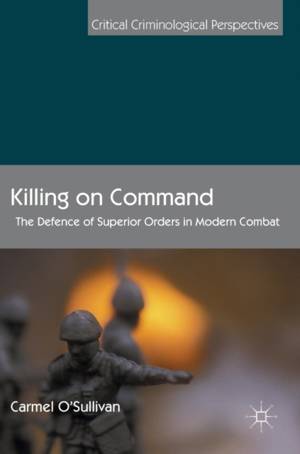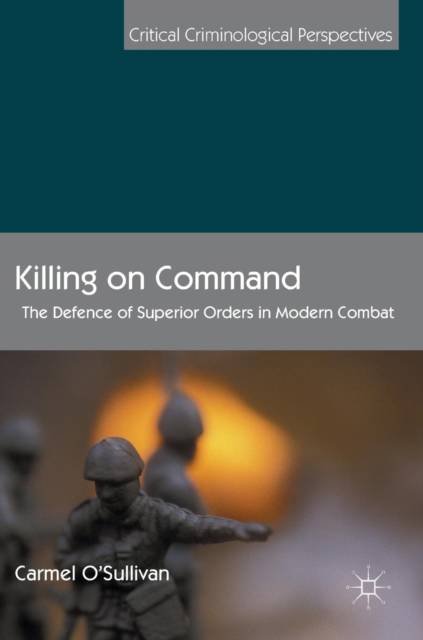
- Afhalen na 1 uur in een winkel met voorraad
- Gratis thuislevering in België vanaf € 30
- Ruim aanbod met 7 miljoen producten
- Afhalen na 1 uur in een winkel met voorraad
- Gratis thuislevering in België vanaf € 30
- Ruim aanbod met 7 miljoen producten
Zoeken
€ 137,45
+ 274 punten
Omschrijving
This book explores the unique social and environmental factors which influence soldiers to commit war crimes. With a focus on decision-making processes, this monograph provides a significant interdisciplinary analysis of how soldiers decide to follow the commands of their superior officers, even if that means acting illegally. Making the key distinction between normal civilian society and the shocking realities of war, the author facilitates the reader with a comprehensive understanding of what a front-line soldier faces in contemporary combat situations.
Killing on Command presents the limits of the law in preventing the occurrence of war crimes. Realistic and practical measures for armed conflict, including the regulation and prevention of violence, and the just implementation of legal standards are all questioned and examined in depth. Given a current focus on the regulation of conduct in war, and the recent prosecution of soldiers, this book will be of particular interest to scholars in the fields of criminology and international relations, as well as policy-makers.
Killing on Command presents the limits of the law in preventing the occurrence of war crimes. Realistic and practical measures for armed conflict, including the regulation and prevention of violence, and the just implementation of legal standards are all questioned and examined in depth. Given a current focus on the regulation of conduct in war, and the recent prosecution of soldiers, this book will be of particular interest to scholars in the fields of criminology and international relations, as well as policy-makers.
Specificaties
Betrokkenen
- Auteur(s):
- Uitgeverij:
Inhoud
- Aantal bladzijden:
- 226
- Taal:
- Engels
- Reeks:
Eigenschappen
- Productcode (EAN):
- 9781137495808
- Verschijningsdatum:
- 26/10/2016
- Uitvoering:
- Hardcover
- Formaat:
- Genaaid
- Afmetingen:
- 154 mm x 223 mm
- Gewicht:
- 412 g

Alleen bij Standaard Boekhandel
+ 274 punten op je klantenkaart van Standaard Boekhandel
Beoordelingen
We publiceren alleen reviews die voldoen aan de voorwaarden voor reviews. Bekijk onze voorwaarden voor reviews.











